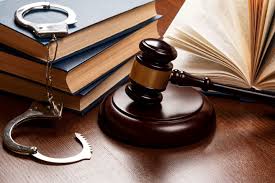Criminal law is a significant branch of law that deals with offenses against the state or public, as well as the associated penalties for such offenses. When individuals find themselves charged with a crime, whether it’s a misdemeanor or a felony, the role of a criminal lawyer becomes crucial. This article explores the responsibilities, skills, and the importance of hiring a criminal lawyer, along with insights into the criminal justice system.
What is a Criminal Lawyer?
A criminal lawyer, also known as a criminal defense attorney, is a legal professional specializing in defending individuals and entities charged with criminal offenses. These offenses can range from minor infractions to serious felonies, including theft, assault, drug offenses, and murder. Criminal lawyers can work in various settings, including private law firms, public defender’s offices, or as solo practitioners.
Responsibilities of a Criminal Lawyer
- Client Consultation and Representation: The initial step for a criminal lawyer involves consulting with the client to understand the case details. They assess the charges, explain the legal process, and discuss possible defenses. They are responsible for representing the client throughout the legal proceedings, from arraignment to trial and beyond.
- Legal Research and Case Preparation: Criminal lawyers conduct extensive research to prepare their cases. This includes gathering evidence, interviewing witnesses, and examining police reports and other documentation. They develop strategies based on the facts of the case and relevant laws.
- Plea Bargaining: In many criminal cases, a plea bargain can be a strategic decision. A criminal lawyer negotiates with prosecutors to reach an agreement that may result in reduced charges or lighter sentences for their clients.
- Court Representation: Criminal lawyers represent their clients in court, presenting evidence, cross-examining witnesses, and making legal arguments. Their goal is to create reasonable doubt in the minds of jurors, or, in bench trials, persuade the judge of their client’s innocence.
- Post-Conviction Representation: If a client is convicted, a criminal lawyer may assist with appeals, sentence reductions, or probation hearings. They continue to advocate for their clients’ rights even after the trial concludes.
Skills and Qualifications of a Criminal Lawyer
To be effective, a criminal lawyer must possess several key skills and qualifications:
- Strong Communication Skills: A criminal lawyer must articulate their arguments clearly and persuasively, both in writing and verbally. They need to communicate effectively with clients, witnesses, and the court.
- Critical Thinking and Analytical Skills: Criminal cases often involve complex legal issues and factual scenarios. A lawyer must analyze information, identify key issues, and develop sound strategies.
- Negotiation Skills: The ability to negotiate favorable plea deals or settlements is vital. A skilled negotiator can save clients from lengthy trials and potentially severe penalties.
- Research Skills: Criminal lawyers need to be proficient researchers, able to delve into statutes, case law, and legal precedents to build strong defenses.
- Ethics and Professionalism: Criminal lawyers must adhere to ethical guidelines and maintain professionalism throughout their practice, ensuring they represent their clients’ best interests without compromising legal standards.
The Importance of Hiring a Criminal Lawyer
- Knowledge of the Law: Criminal lawyers possess extensive knowledge of criminal law and procedures. They understand the intricacies of the legal system, which can be overwhelming for someone without legal training.
- Protection of Rights: A criminal lawyer ensures that the rights of their clients are protected throughout the legal process. They advocate for fair treatment and challenge any violations of rights.
- Strategic Defense: An experienced criminal lawyer can identify viable defense strategies that may not be apparent to someone without legal expertise. This includes potential defenses such as self-defense, alibi, or entrapment.
- Reducing Sentences and Charges: Skilled lawyers can negotiate for reduced charges or lighter sentences, which can have a significant impact on a client’s future.
- Emotional Support: Facing criminal charges can be an emotionally taxing experience. A criminal lawyer provides not only legal support but also guidance and reassurance during a challenging time.
Whether facing minor charges or serious allegations, having the right legal representation is crucial. A strafverteidiger wels can offer the expertise needed to navigate the complexities of the criminal justice system in Wels, ensuring that your rights are protected and your case is handled with the utmost care and professionalism.
The Criminal Justice System
The criminal justice system consists of several key components, including law enforcement, the judiciary, and correctional institutions. Criminal lawyers interact with various entities within this system, including police officers, judges, and prosecutors. Understanding how these components function is essential for effective legal representation.
- Law Enforcement: Police officers investigate crimes and gather evidence. A criminal lawyer may challenge the legality of evidence obtained during an arrest or investigation, arguing for its exclusion in court.
- Judiciary: Judges preside over criminal cases, ensuring fair trials and impartiality. Criminal lawyers must understand judicial procedures and the specific court in which they are practicing to navigate effectively.
- Corrections: If a client is convicted, the corrections system comes into play. Criminal lawyers may work with probation officers or parole boards during post-conviction proceedings.
Conclusion
The role of a criminal lawyer is vital within the legal system, providing essential representation for individuals accused of crimes. Their expertise not only aids in navigating the complexities of the criminal justice system but also ensures that the rights of the accused are upheld. Whether facing minor charges or serious allegations, hiring a skilled criminal lawyer can significantly impact the outcome of a case. Their commitment to defending clients and advocating for justice is crucial in a system where the stakes are high and the implications of a conviction can last a lifetime.

